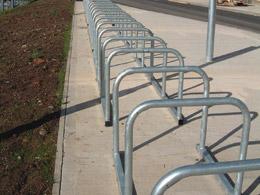After the amazing performance of team GB cyclists at the Olympics and the triumph of Bradley Wiggins in the tour de France, cycling in Britain has never been more popular. You don’t have to be an elite athlete to enjoy cycling and one of the best things about owning a bike is being able to use it to cycle to work. By leaving the car at home or by not having to use public transport to commute to work you really can save a small fortune, perhaps even enough to cover the cost of buying a new bike after just a few months.
Health benefits
The health benefits of cycling to work are fairly obvious, but a list of a few of the benefits would need to include better aerobic fitness, an increased lung capacity, lower blood pressure, lower cholesterol and general improved fitness. You could probably also argue that you will have a better mental well-being and be more alert and active when at work. With many people spending most of their work and home life sitting down, cycling is a great way to tackle weight problems brought on by an abundance of food and a sedentary lifestyle. There are of course some physical risks in cycling to work but studies have shown these to be far outweighed by the benefits of keeping fit. There have even been studies showing that over an equivalent car and cycle journey, the car driver will breathe in far more pollutants than the cyclist.
The employer also benefits
Staff who cycle to work are far less like likely to have time off and will be fitter and more alert! The business can also benefit from a corporate responsibility point of view – if you provide facilities for cyclists and encourage staff to cycle to work then you are enhancing your green credentials. Some companies have pressure on their parking facilities – especially companies that operate shifts – and having more staff cycling to work will certainly help with this issue.
Cycle to work schemes
The Government’s ‘cycle to work’ scheme enables people to make savings on bike equipment by making items tax deductible. Employees can also take out a kind of hire agreement whereby they make payments over 12– 18 months and then buy the bikes for a percentage of their original price – sometimes as much as one third off the price. In 2011 more than 400,000 people had purchased bikes via ‘Cycle to Work’.
Business commitment
As well as being prepared to take part in a ‘cycle to work’ an employer will also need to make some kind of provision for cycle parking. This could range from a few basic cycle racks or a Sheffield ‘toastrack’ style bike rack to Bykebins (which house the whole bike and can then be securely locked). Bike shelters can also be an attractive addition to the car park and can range from a traditional style to a modern modular and curved polycarbonate style. Many new build office buildings will now have shower facilities but for older workplaces showers may not be available and it will require quite a dedicated employer to foot the bill to have them installed. If this is the case then it it is worth investigating whether match funding is available to help offset some of the cost.
If you work for a company that doesn’t encourage cyclists then you should point out the many benefits to the business and remind them that they are gradually running out of excuses not to cater for the growing ranks of people who want to cycle to work.
Rick Bloomfield is the website editor for the Workplace Depot and formerly the website manager at the Woodland Trust

